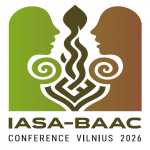11. A note on copyright
All sound archives - especially those concerned with commercial recordings - will sooner or later come into contact with copyright legislation. Can we make tape copies of records for researchers or for exchange with other archives? Can we make duplicates for our internal use? Can we charge for copies?
The details of copyright legislation vary considerably from country to country and the copyright of sound recordings is not always as clearly established as, say, the copyright of printed works. The following should consequently be read only as a general outline of the subject; individual archivists must thoroughly understand the law in their own countries. However, some general principles are common to the copyright legislation in most countries.
A commercially published sound recording usually utilizes two separate types of copyright:
the rights of the author(s) of the recorded work (composer, lyricist, arranger, etc.). These rights are often controlled by a publisher and/or a copyright organization;
the rights of the performer and the record company, usually controlled by the latter and/or a performing rights organization.
The author or owner of a copyrighted work has the exclusive control of the use of the work. Thus archives making a tape copy of a recording for their internal use may be breaking a law, unless this is specifically permitted in the country's copyright law or the archives have the permission of the copyright owners.
Laws must be obeyed, but copyright must never be an excuse of inaction. There are least three different ways of ascertaining that archives can make necessary copies and in other ways utilize copyrighted works.
(a) Obtain Necessary Permits
Especially in countries where composers and record companies have representative organizations, it might be relatively easy to obtain permission to make copies of copyrighted recordings for archival use or exchange. A payment may be demanded but this need not be excessively high. The copyright owners may also realize the importance of archives and grant certain rights free of charge. Even if a general arrangement is not possible permission may be sought in specific cases, for instance when an exchange with a foreign archive is involved. Never use copyright problems as an excuse for refusing to make copies unless you have at least asked the copyright owners.
(b) Exceptions Provided by Law
In most countries, copyright legislation provides some exceptions to the general principle. In some cases these exceptions directly involve archives. For instance, the copyright law of Finland allows archives to copy printed works on microfilm and it has been suggested that a similar provision be made for copying rare recordings on tape to ensure their preservation.
(c) Works Out of Copyright
Copyright lasts for a certain number of years only; the time of protection varies from country to country and can be different for different types of works. When copyright has expired, the work is in public domain and can be freely copied. Please note, however, that the rights of both the authors and the performers must have expired before this can be done. Early recordings are out of copyright in many cases.
The illegal copying of sound recordings continues to cause great losses to the record industry and it is easy to understand why the industry is very much concerned about copyright. Where sound archives are concerned, however, the record companies are usually quite helpful. Archivists who are uncertain about copyright matters, or who have specific problems regarding the copying of sound recordings, should first contact copyright organizations or representatives of the record industry in their own country. Certainly many problems may be solved in this way.


